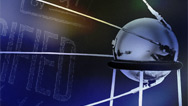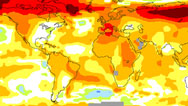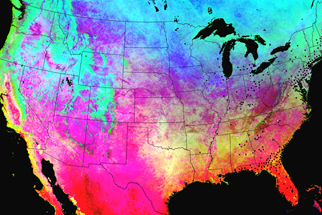The Uses of Satellite Imagery
- By Rima Chaddha and Caitlin Feeley
- Posted 10.01.07
- NOVA
The earliest satellites played key roles in the Cold War, allowing the Soviet Union and the United States to spy on each other under the public guise of conducting scientific research. But as imaging technology improved, scientific applications became a reality. While some satellites now look outward to tell us more about the distant universe, most focus on the world around us, revealing information on everything from upcoming weather to natural disasters, from ancient roadways to the spread of disease. In this slide show, explore nine scientific and practical applications made possible by Earth-orbiting satellites.
This feature originally appeared on the site for the NOVA program Sputnik Declassified.
Credits
Images
- (landslide)
- Courtesy GeoEye
- (hurricane, image from TIROS, Syrian village, Telstar 1 image, U.S. temperature peak, Landsat image of Washington, D.C., ozone levels over Antarctica, Yellowstone topo map)
- Courtesy NASA
- (crop light spectra)
- © Spot Image Society
Related Links
-

Detailed satellite images reveal the web of connections that sustain life on Earth.
-

Top-secret documents rewrite the history of the famous satellite and the early space race.
-

How do consumption and rapid population growth affect our planet's natural resources?
-

View satellite images of glaciers that have wreaked havoc—or might soon.
Close
You need the Flash Player plug-in to view this content.






